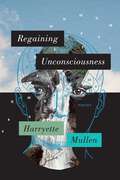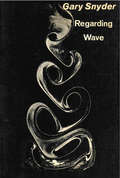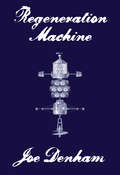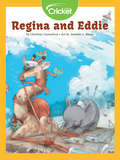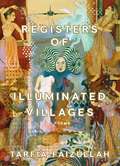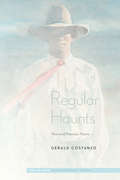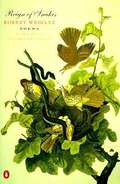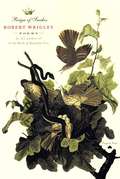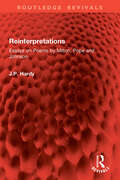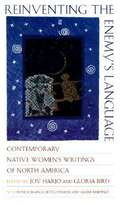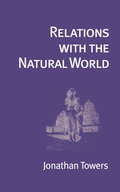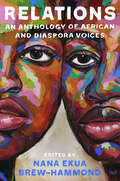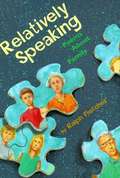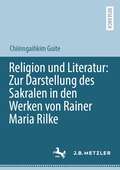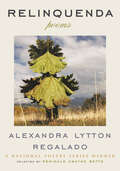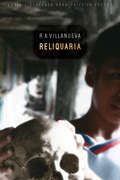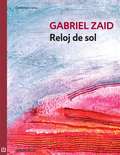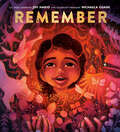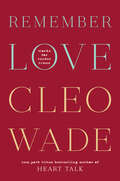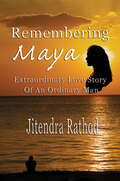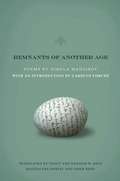- Table View
- List View
Regaining Unconsciousness: Poems
by Harryette MullenHarryette Mullen is one of contemporary poetry’s most influential voices, for her inventive language play, keen wit, formal experimentation, and pointed critique of American culture. In Regaining Unconsciousness, her first new collection in twelve years, Mullen confronts the imminent dangers of our present to sound an alarm for our future, to wake us out of our complicity and despondency: Can we, even still, find our way to our unconscious selves, beyond our capacity to harm, subdue, and consume?In eleven taut sections written in the eleventh hour of our collective being, these poems address climate change, corporate greed, racist violence, artificial intelligence, the pollution of our oceans, individualism at the cost of mutual wellness, and the consequences of not addressing these pressing issues. Mullen imagines, as we must, our apocalypse, and yet, in an astounding feat, she does so with playfulness and wry referentiality that make these poems surprisingly buoyant, funny, and readable. Our end may be inevitable, Mullen admits, but maybe we begin with gratitude.
Regarding Wave: Poetry
by Gary SnyderThe title, Regarding Wave, reflects "a half-buried series of word origins dating back through the Indo-European language: intersections of energy, woman, song and 'Gone Beyond Wisdom.'" "Wild nature as the ultimate ground of human affairs"--the beautiful, precarious balance among forces and species forms a unifying theme for the new poems in this collection. The title, Regarding Wave, reflects "a half-buried series of word origins dating back through the Indo-European language: intersections of energy, woman, song and 'Gone Beyond Wisdom.'" Central to the work is a cycle of songs for Snyder's wife, Masa, and their first son, Kai. Probing even further than Snyder's previous collection of poems, The Back Country, this new volume freshly explores "the most archaic values on earth... the fertility of the soil, the magic of animals, the power-vision in solitude, the terrifying initiation and rebirth, the love and ecstasy of the dance, the common work of the tribe..."
Regeneration Machine
by Joe DenhamTwenty years ago Nevin Sample walked into a small bank in Deep Cove, robbed a teller at gunpoint and fled into the forest of Cates Park. After a lengthy pursuit, he hid behind a stump at the edge of a small clearing. The police called to him. He raised the gun to his head and pulled the trigger.Nevin had a magnetism, an understated complexity: there were those who loved him, resented him, found him gregarious. To Joe Denham, he was an old, close friend. Regeneration Machine is a 100-stanza, 9,000-word letter-in-verse to Nevin's ghost-a requiem, elegy, lament; a sort of flailing attempt to make sense of the nonsensically violent way that a non-violent, caring, intelligent young man chose to end his life.
Regina and Eddie
by Charlotte GunnufsonRegina Giraffe and Eddie Elephant have to improvise in order to make their raft seaworthy.
Registers of Illuminated Villages: Poems
by Tarfia Faizullah“Tarfia Faizullah is a poet of brave and unflinching vision.” —Natasha TretheweySomebody is always singing. Songswere not allowed. Mother said,Dance and the bells will sing with you.I slithered. Glass beneath my feet. Ilocked the door. I did notdie. I shaved my head. Until the hornsI knew were there were visible.Until the doorknob went silent. —from “100 Bells”Registers of Illuminated Villages is Tarfia Faizullah’s highly anticipated second collection, following her award-winning debut, Seam. Faizullah’s new work extends and transforms her powerful accounts of violence, war, and loss into poems of many forms and voices—elegies, outcries, self-portraits, and larger-scale confrontations with discrimination, family, and memory. One poem steps down the page like a Slinky; another poem responds to makeup homework completed in the summer of a childhood accident; other poems punctuate the collection with dark meditations on dissociation, discipline, defiance, and destiny; and the near-title poem, “Register of Eliminated Villages,” suggests illuminated texts, one a Qur’an in which the speaker’s name might be found, and the other a register of 397 villages destroyed in northern Iraq. Faizullah is an essential new poet whose work only grows more urgent, beautiful, and—even in its unsparing brutality—full of love.
Regular Haunts: New and Previous Poems (Ted Kooser Contemporary Poetry)
by Ted Kooser Gerald CostanzoGerald Costanzo, long known as one of the best contemporary poets of satire, focuses specifically on American themes that, though presented as parables, fables, jokes, and put-ons, remain darkly serious in tone. His subject is the mythic landscape of America itself: the transitory, popular, consumer culture of late twentieth- and early twenty-first-century life. Costanzo evokes a sense of having arrived on the scene too late, of having missed the heyday of American innocence and possibility, and now—in the present—is forced to live with diminished experience. He mourns a culture where genuine emotion cannot be found but where its semblance can be endlessly marketed. Regular Haunts is a retrospective collection of Costanzo’s work that also includes nearly thirty new poems.
Reign of Snakes
by Robert WrigleyDescribed by the late James Dickey as "one of the finest new poets to come along in years," Robert Wrigley fulfills that early promise with this, his newest collection. Reign of Snakes is a book about desire, the soul's desire as much as the body's. As Jane Hirshfield said of Wrigley's previous book, In the Bank of Beautiful Sins (Penguin, 1995), "To read it is to unpeel a little further into the human, and into the wideness that holds the human -- a splendid gift. Reign of Snakes takes us to yet another level, deep into the daily devotions, where the dark blows a kiss to night."
Reign of Snakes
by Robert WrigleyDescribed by the late James Dickey as "one of the finest new poets to come along in years," Robert Wrigley fulfills that early promise with this, his newest collection. Reign of Snakes is a book about desire, the soul's desire as much as the body's. As Jane Hirshfield said of Wrigley's previous book, In the Bank of Beautiful Sins (Penguin, 1995), "To read it is to unpeel a little further into the human, and into the wideness that holds the human--a splendid gift. " Reign of Snakes takes us to yet another level, deep into the daily devotions, "where the dark blows a kiss to night. " . . . a frigid day in February and a full-grown rattlesnake curled to a comma in the middle of the middle of the just-plowed road. Ice ghost, I think, curve of rock or stubbed-off branch. But the diamonds are there, under a dust of crystals looming, impossible, summer's tattoo, the mythical argyle of evil. --from "Reign of Snakes" .
Reign of Snakes
by Robert WrigleyDescribed by the late James Dickey as "one of the finest new poets to come along in years," Robert Wrigley fulfills that early promise with this, his newest collection. Reign of Snakes is a book about desire, the soul's desire as much as the body's. As Jane Hirshfield said of Wrigley's previous book, In the Bank of Beautiful Sins (Penguin, 1995), "To read it is to unpeel a little further into the human, and into the wideness that holds the human--a splendid gift." Reign of Snakes takes us to yet another level, deep into the daily devotions, "where the dark blows a kiss to night." . . . a frigid day in February and a full-grown rattlesnake curled to a comma in the middle of the middle of the just-plowed road. Ice ghost, I think, curve of rock or stubbed-off branch. But the diamonds are there, under a dust of crystals looming, impossible, summer's tattoo, the mythical argyle of evil. --from "Reign of Snakes"
Reinterpretations: Essays on Poems by Milton, Pope and Johnson (Routledge Revivals)
by J.P. HardyFirst published in 1971, Reinterpretations focusses upon a group of closely related major poems—L’Allegro and Il Penseroso, Milton’s companion pieces, and Lycidas, Pope’s Rape of the Lock and Epistle to Dr Arbuthnot, and Johnson’s London. The critical and interpretive light which Professor Hardy brings to bear on these works constitutes a considerable reinterpretation which informs our understanding of seventeenth and eighteenth century English poetry.In the individual essays, Professor Hardy suggests that the real theme of Milton’s companion poems has gone unrecognized, and that not only has Lycidas a clear structural unity, but the final, effective statement of its theme depends on a realization of how this unity is achieved. He argues that current interpretations of Pope’s beautiful heroine are generally too limiting, especially in ignoring the wit of the Rape’s overall conception, and that the Epistle to Dr Arbuthnot, far from being a mere collection of brilliant passages, has a structure skilfully articulated in terms of its individual theme. Finally, he demonstrates that Johnson’s reworking of Juvenal’s famous third satire has, as its central structural metaphor implies, an original and essentially political theme. This book will be a beneficial read for students and researchers of English literature.
Reinventing the Enemy's Language: Contemporary Native Women's Writings of North America
by Joy Harjo Valerie Martínez Beth Cuthand Patricia Blanco Gloria BirdThis anthology celebrates the experience of Native American women and is at once an important contribution to our literature and an historical document. It is the most comprehensive anthology of its kind to collect poetry, fiction, prayer, and memoir from Native American women. Over eighty writers are represented from nearly fifty nations, including such nationally known writers as Louise Erdrich, Linda Hogan, Leslie Marmon Silko, Lee Maracle, Janet Campbell Hale, and Luci Tapahonso; including Wilma Mankiller, Winona LaDuke, and Bea Medicine -- who are known primarily for their contributions to tribal communities -- some who are published here for the first time in this landmark volume.
Relations with the Natural World
by Neil Baldwin Jonathan TowersA beloved, familiar figure known as "Jon the Walker" for his daily appearances traversing the marshes and waterways of various Connecticut towns, Jonathan Towers composed brief, emotionally evocative poems until his suicide in 2005 after years of struggle with mental illness. His work was fueled by reading and a rich inner life exploring the tarot, medieval history, courtly love and relationship, and the pre-Socratic philosophers. These poems beautifully evoke a sense of place, while also powerfully critiquing the forces of modern life that threaten it.
Relations: An Anthology of African and Diaspora Voices
by Nana Ekua Brew-HammondFresh and electrifying—stories, poems, and essays by African and diaspora writers, edited by author Nana Ekua Brew-Hammond.Relations punctures the human illusion of separation. New and established storytellers reshape the narratives that divide and subjugate, revealing the truth of our shared humanity despite differences in language, identity, class, gender, and beyond. This vital anthology is Nana Ekua Brew-Hammond’s striking vision of a meeting place of perspectives, centered in the African and diaspora experience.In a post-Black Panther world, it is an urgent and welcome embrace of the diversity of Blackness. A refreshing collection of genre-spanning literature, it offers a vibrant meditation on being—inviting connection across real and imagined borders, and celebration of the most profound relations.
Relative Chronology in Early Greek Epic Poetry
by Øivind Andersen Dag T. T. HaugThis book sets out to disentangle the complex chronology of early Greek epic poetry, which includes Homer, Hesiod, hymns and catalogues. The preserved corpus of these texts is characterised by a rather uniform language and many recurring themes, thus making the establishment of chronological priorities a difficult task. The editors have brought together scholars working on these texts from both a linguistic and a literary perspective to address the problem. Some contributions offer statistical analysis of the linguistic material or linguistic analysis of subgenres within epic, others use a neoanalytical approach to the history of epic themes or otherwise seek to track the development and interrelationship of epic contents. All the contributors focus on the implications of their study for the dating of early epic poems relative to each other. Thus the book offers an overview of the current state of discussion.
Relatively Speaking: Poems About Family
by Ralph J. FletcherA collection of poems that describe the experiences and relationships in a close-knit family.
Religion und Literatur: Zur Darstellung des Sakralen in den Werken von Rainer Maria Rilke
by Chiinngaihkim GuiteIn dem vorliegenden Buch wird untersucht, auf welche Weise Rilkes religiöse Erfahrungen einen ästhetischen Ausdruck in seinem Werk finden und wie diese Motive literarisch verarbeitet werden. Die Autorin beschäftigt sich eingehend mit den in Rilkes Werk auftauchenden christlichen, islamischen und buddhistischen Motiven. Die Analyse konzentriert sich somit auf die Schnittstelle zwischen Literatur und Religion. Darüber hinaus wird auch Rilkes künstlerische Entwicklung, vor allem der Bezug seiner poetischen Werke zur bildenden Kunst hervorgehoben. Kunst und Poesie bilden einen engen Zusammenhang in Rilkes Werk, in dem eine komplexe Interaktion zwischen verbaler und visueller Kunst stattfindet.
Relinquenda: Poems
by Alexandra RegaladoA 4-part poetry collection that explores women&’s roles in familial dynamics, immigration, and El Salvador&’s civil war while reflecting on the death of the poet&’s fatherA National Poetry Series winner, selected by the celebrated poet Reginald Dwayne BettsWhen COVID-19 broke and the United States closed the border to travel, Alexandra Lytton Regalado was separated from family back in El Salvador. She wrote Relinquenda entirely during lockdown as a meditation on cancer, the passing of her father, and the renewed significance of community.The central part of the collection focuses on her father during his 6-year struggle with cancer and considers how his stoicism, alcoholism, and hermitage might serve as mirror and warning. In contrast, she dedicates other poems to what it means for daughters, mothers, and wives to care for another as reflected in her relationships with the men in her life.Situated in the tropical landscapes of Miami, Florida and El Salvador, the poems also negotiate the meaning of home, reflecting on immigration and the ties between United States and El Salvador 30 years after her birth country&’s decade-long civil war.In a lyrical and often bilingual voice, Regalado explores the impermanence and the body, communication and inarticulation, and the need to let go in order to heal regrets.
Reliquaria (Prairie Schooner Book Prize in Poetry)
by R. A. VillanuevaIn his prize-winning poetry collection Reliquaria, R. A. Villanueva embraces liminal, in-between spaces in considering an ever-evolving Filipino American identity. Languages and cultures collide; mythologies and faiths echo and resound. Part haunting, part prayer, part prophecy, these poems resonate with the voices of the dead and those who remember them. In this remarkable book, we enter the vessel of memory, the vessel of the body. The dead act as witness, the living as chimera, and we learn that whatever the state of the body, this much rings true: every ode is an elegy; each elegy is always an ode.
Reloj de sol (Ya Leíssste? Ser. #Vol. 6)
by Gabriel ZaidGabriel Zaid ha escrito poemas en prosa y verso, ensayos acerca de los problemas sociales de la poesía y breves comentarios sobre poetas mexicanos. De su entusiasmo inicial por formas que fueron gratas al gongorismo de los años veinte, Zaid derivó hacia una lírica de la brevedad y la concentración en que la ironía, la nostalgia, el sentimiento del tiempo, se expresan con un tono cada vez más personal y con una economía de medios admirable. Zaid hizo una recopilación de sus mejores poemas en Reloj de sol (1995). En los primeros poemas de Zaid "están ya casi todas las cualidades que después distinguirían a su poesía: la economía, la justeza del tono, la sencillez, la chispa repentina del humor y las revelaciones instantáneas del erotismo, el tiempo y el otro tiempo que está dentro del tiempo. Maestría precoz, excepcional en la poesía contemporánea [...] La sátira cobra importancia a partir de Campo nudista [...] En la sátira se cruzan las tres direcciones cardinales de la poesía de Zaid: el amor, el pensamiento y la religión. Nuestra insensibilidad ante lo espiritual y lo numinoso ha alcanzado tales proporciones que nadie, o casi nadie, ha reparado en la tensión religiosa que recorre a los mejores poemas de Zaid. [...] Poeta religioso y metafísico, Zaid es también -y por eso mismo- poeta del amor. En sus poemas amorosos la poesía opera de nuevo como una potencia transfiguradora de la realidad. Esa transfiguración no es cambio ni transformación sino desvelamiento, desnudamiento: la realidad se presenta tal cual. El colmo de la extrañeza es que las cosas sean como son". Octavio Paz
Reluctant Survivor
by Sridala SwamiThe poetry of 'A Reluctant Survivor' is concerned with the self and the ways in which it negotiated the world and withdrew from it by turns. In this book, places and people can appear at once familiar and fantastic, vulnerable and strange.
Remember
by Joy HarjoUS Poet Laureate Joy Harjo’s iconic poem "Remember," illustrated by Caldecott Medalist Michaela Goade, invites young readers to pause and reflect on the wonder of the world around them, and to remember the importance of their place in it.** <P><P> Remember the sky you were born under,<br> Know each of the star's stories.<br> Remember the moon, know who she is.<br> Remember the sun's birth at dawn,<br> That is the strongest point of time. <P><P> So begins the picture book adaptation of the renowned poem that encourages young readers to reflect on family, nature, and their heritage. In simple and direct language, Harjo, a member of the Mvskoke Nation, urges readers to pay close attention to who they are, the world they were born into, and how all inhabitants on earth are connected. Michaela Goade, drawing from her Tlingit culture, has created vivid illustrations that make the words come alive in an engaging and accessible way. <P><P> This timeless poem paired with magnificent paintings makes for a picture book that is a true celebration of life and our human role within it.
Remember Love: Words for Tender Times
by Cleo WadeFrom the beloved, New York Times bestselling author of Heart Talk, a collection of prose and poetry that explores how we can find light in periods of lostness, love for ourselves after heartbreak, okay-ness in the midst of change, and strength in letting go. How do we find steadiness within ourselves in the midst of dizzying personal and global change? At a time when many of us feel overwhelmed by fear and isolation, Cleo Wade&’s Remember Love offers intimate, uplifting words that anchor, nurture, and make us feel less alone. She shares that the heart work we do for ourselves is not done to avoid the tough stuff—periods of lostness, self-doubt, depression, grief, heartbreak, and anxiety. Wade instead suggests that to live is to get lost, and it&’s our task, our great privilege, to learn to love ourselves so that we can handle these periods and our discomfort does not block our healing. Remember Love reminds us that lostness is not our permanent state but a starting point for self-discovery, connection, and growth.
Remembering Maya: Extraordinary Love Story Of An Ordinary Man
by Jitendra RathodJayesh Satvahana, a lawyer, is a loser and a winner--rolled into one. A successful and progressing career makes him a winner, but as far as relationships go--he's a loser. A chance meeting with the beautiful Maya Choudhary shakes Jay and he questions the very foundations of his life. Maya comes for help to save her non profit organization from greedy commercialists. Before Jay realizes, he is madly in love with Maya. He fights her case with audacity and determination. He struggles to win the case and wants to win Maya--and spend the rest of his life in peace and happiness. But fate is not without a cruel sense of irony.
Remnants of Another Age
by Carolyn Forché Nikola Madzirov"These poems move mysteriously by means of a profound inner concentration, giving expression to the deepest laws of the mind. Their linguistic 'making' is informed by vivid evidence of a serious self-making, soul-making, and heart-making. We are lucky to have these English incarnations of Nikola Madzirov."-Li-Young LeeBorn 1973 in a family of Balkan Wars refugees, Nikola Madzirov's poetry has already been translated into thirty languages and published in collections and anthologies in the United States, Europe, and Asia. A regular participant in international literary festivals, he has received several international awards including an International Writing Program fellowship at the University of Iowa. Remnants of Another Age is his first full-length American collection and carries a foreword by Carolyn Forché who writes, "Nikola Madzirov's Remnants of Another Age is aptly titled, as these poems seem to spring from elsewhere in time, reflective of a preternaturally wise and attentive sensibility. As we read these poems, they begin to inhabit us, and we are the better for having opened ourselves to them. Madzirov is a rare soul and a true poet.""I SAW DREAMS"I saw dreams that no one remembersand people wailing at the wrong graves.I saw embraces in a falling airplaneand streets with open arteries.I saw volcanoes asleep longer thanthe roots of the family treeand a child who's not afraid of the rain.Only it was me no one saw,only it was me no one saw.
